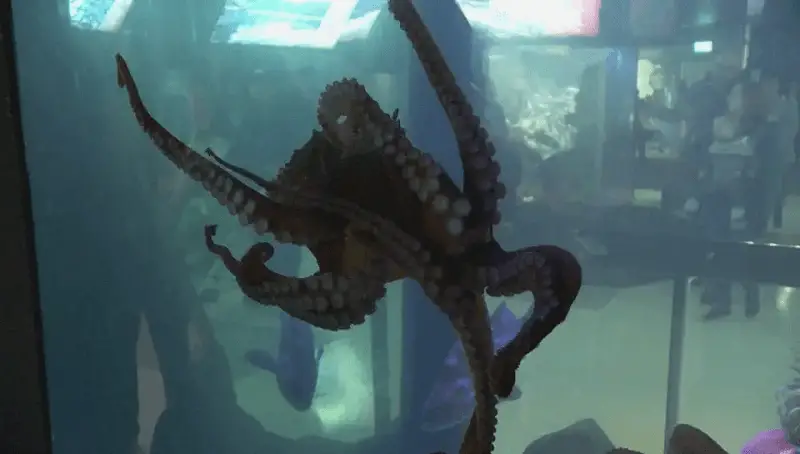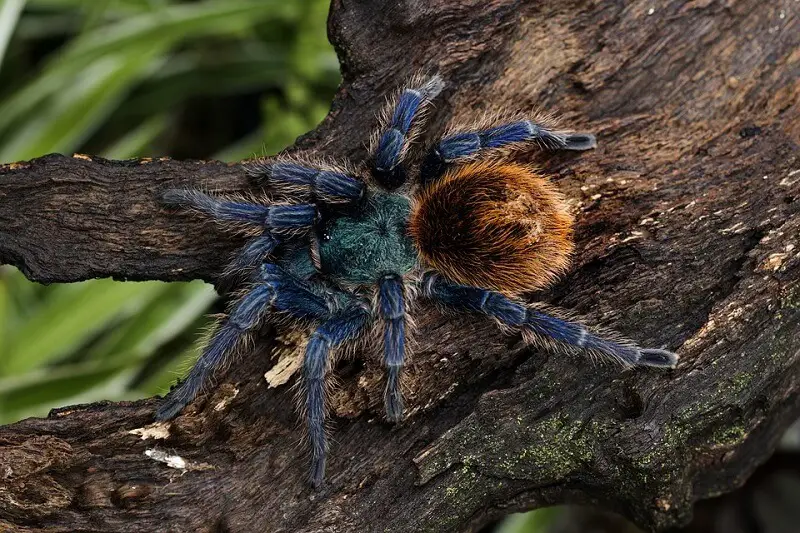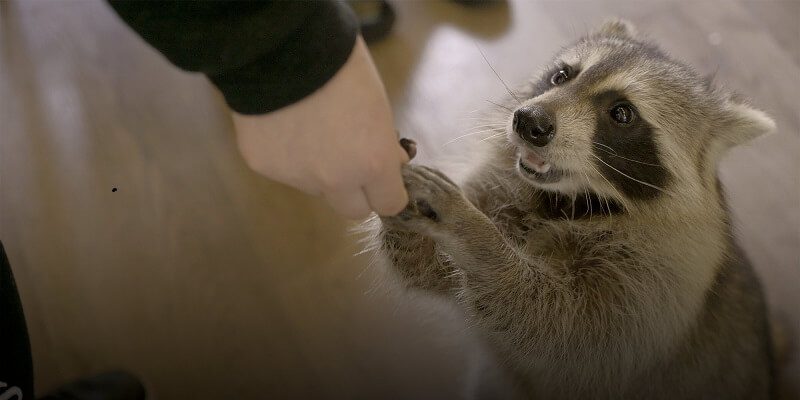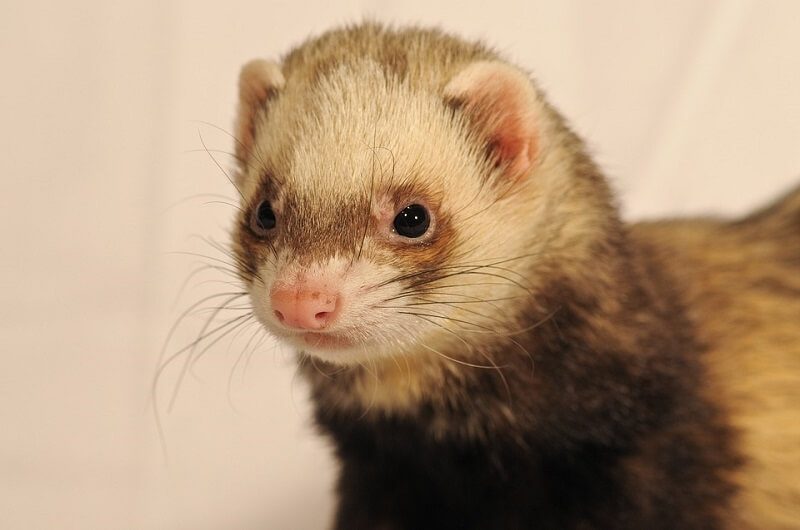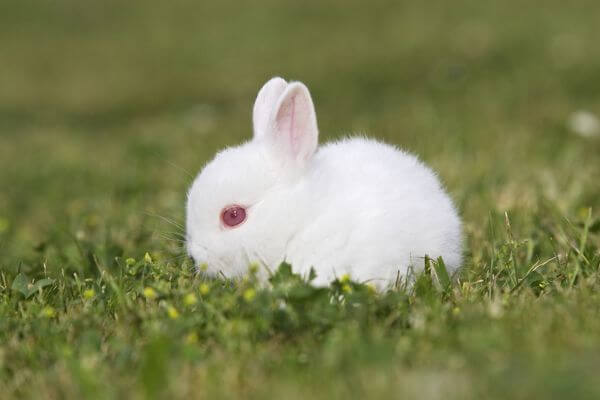Octopuses are considered exotic pets. These animals are kept by only a few niche pet lovers, mainly because they are not as easy to keep as fish, for example. Some species of octopus can’t even be tamed at all. You will find below a list of octopus species that will be great pets to own.
First off, here’s an interesting thing about octopuses: They have a brain that will be considerably bigger proportionally than that of most large animals. This alone is enough for this particular animal to be considerably smarter than many others, but it turns out that it also has neurons in its eight arms.
As you might expect, not a lot of people will think of an octopus when they are looking for a loving pet. This isn’t a surprise considering that many octopuses are very large in size, some are very poisonous, while most of them are very unpredictable and sometimes even aggressive. But experienced owners know that not all octopus species are the same and that some are actually pretty small in size and can be great pets if you know how to properly attend to their needs. As long as you place them in a decently sized aquarium or tank and feed them properly, taking care of them won’t be such a complicated task.
You might also like my articles on whether octopuses have bones and on great names for octopuses and squids.
You will notice that most octopuses will spend most of the day in their dens because they are nocturnal creatures. Most of them will also be able to change their shape and color at will. They won’t like other creatures in their tanks because they are solitary animals. They can be kept as pets pretty safely and easily if they have the needed living conditions. Keep in mind that this isn’t the case with all octopus species, so don’t just bring home one you found while snorkeling. There is only a handful you can actually own as pets. Below you will find out exactly what types of octopuses should you look for.
The Common Octopus
The common octopus is also known as Octopus vulgaris. This species lives in tropical waters. This still is one of the most studied species of octopus. It will need a tank of around 50 gallons in capacity, if not more. It will usually eat any fish you place in its tank. It is an extensive muncher and will hold onto anything you throw in the tank, so don’t try to get your hand into the water to pet it. It is also very smart and might find ways of escaping the tank so be very careful about its movements.
East Pacific Red Octopus
This species is also known as the Octopus rubescens, or, more commonly, the ruby octopus. You will find this mostly in shallow waters. Their color is usually either brown or red. This is one of the most intelligent species. This was actually the first invertebrate that scientists have managed to demonstrate it has individual personalities. Its size is also small. You can keep it it a smaller aquarium with a water temperature of anywhere between 60 and 65°F.
Atlantic Pygmy Octopus
This creature is also known as the Octopus joubini. It can be kept in a very small tank, due to its small dimensions. Its size will also translate into a smaller price of acquisition. It will be really fun to watch in an aquarium due to the way in which it will change colors. Although it is a very playful and intelligent creature, it will also need its privacy and alone time. There are just some of the reasons why this particular creature is considered a great pet.
California two-spot Octopus
This octopus is also known as the Octopus bimaculoides or more commonly the Bimac. This will be one of the most popular octopus species to own as a pet. An aquarium with a 50-gallon capacity should be enough for this species. It needs a water temperature of 59°F. One of the most visible features of this type of octopus is its eyespots on both sides of the head. It will be a great pet especially because it is a very friendly creature.
Algae Octopus
This species of octopus is also known as the Abdopus aculeatus. These creatures are usually small in size and pretty active during the daytime. They won’t need a tank larger than 50 gallons and the water should be around 78°F for them to strive.
<Caribbean Reef Octopus
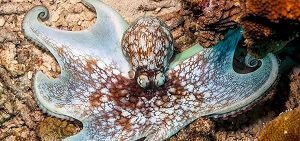 The scientific name of this particular breed is Octopus briareus. The specimens of this breed will have a large mantel and long arms. This pet will also change its color to blend in with its surroundings. It will be moderately active during the day and considerably more active during the night and will prefer to live in warm waters. You will need a tank of around 50 to 75 gallons to keep this species of octopus in it. You should also set a temperature for the water at around 78°F. It is as friendly as an octopus can be.
The scientific name of this particular breed is Octopus briareus. The specimens of this breed will have a large mantel and long arms. This pet will also change its color to blend in with its surroundings. It will be moderately active during the day and considerably more active during the night and will prefer to live in warm waters. You will need a tank of around 50 to 75 gallons to keep this species of octopus in it. You should also set a temperature for the water at around 78°F. It is as friendly as an octopus can be.
Caribbean Dwarf Octopus
This breed is also known as the Octopus mercatoris. This is a small octopus known as a dwarf specimen that will usually be found in the Atlantic Ocean and the Caribbean Sea region. You will need an aquarium of about 30 gallons to accommodate this particular pet. When in the wild, it will spend most of its day in its cave. This means that it will be a good idea to build a den or an artificial cave inside the aquarium where it is kept. If you don’t want to just buy an artificial cave, you can get a glass jar and fill it with coconut shells or rocks with cervices for this purpose. The lifespan of this creature is anywhere between 8 and 10 months. Keep this octopus in water with a temperature of around 75°F to keep it healthy.
You should know that these creatures don’t have a long lifespan. They usually won’t live more than 10 months. Some species can even live to one or two years max. Even so, this is a very fascinating pet to own and you won’t get enough of watching it move in the tank. It will help you relax with its weird shape, its way of changing colors, and its intelligence.
Keep in mind that an octopus is still an exotic pet. This means that you should first make sure it is legal to own one in your state before getting it. Keeping an animal as a pet will also mean that you will force it out of its natural habitat, so it will be a lot sadder than if you were to leave it alone.
